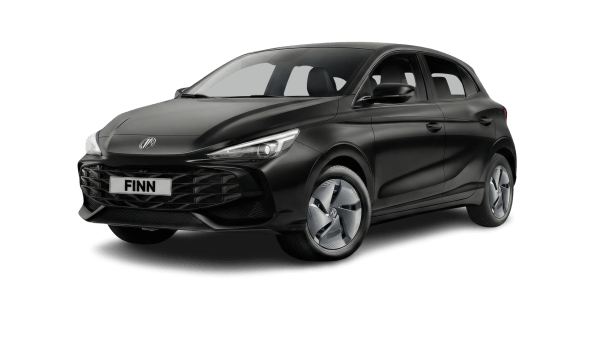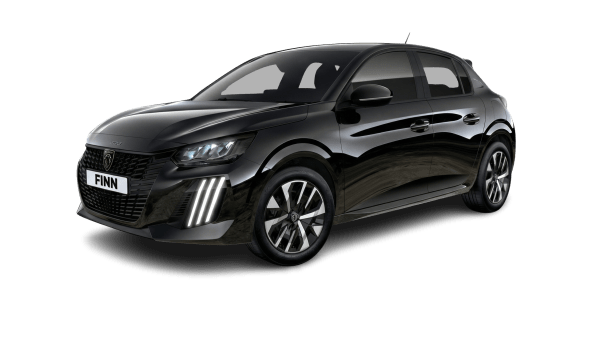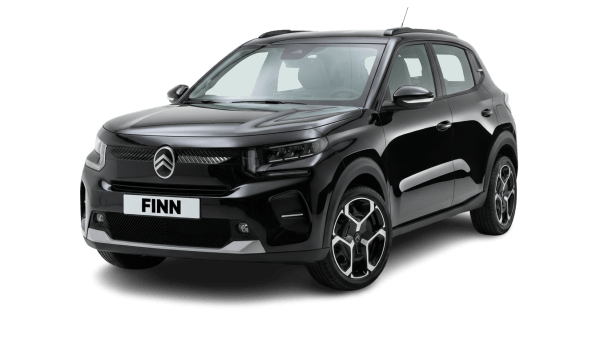Should You Buy a New or Used Car?
Explore the pros and cons, costs, and considerations in deciding between a new car or a more affordable used one.
Read time
6 minutes
Date
12.07.2023
Share

Choosing the right car isn't easy. There are so many models to choose from, and on top of that, you’ll need to decide if you want a new or used one.
Once you drive a new car out of the dealership’s lot, the car depreciates. So is a new car even worth it? Is the car going to be too expensive for the miles you'll drive? Do you really need a car if you're only doing short trips every day?
If you're unsure about buying a new or used car, why not consider a car subscription from FINN? With a FINN car subscription, you can access the latest vehicles with a monthly payment that also covers insurance, registration, and roadside assistance. You also have the flexibility to upgrade or change your car after six to 12 months.
Find your car
New vs. used car costs
Buying a new car has its perks, like having the latest safety features and technology and being covered by a factory warranty for potential repairs. But a used car is generally more affordable and has slower depreciation, making it a smarter financial choice. Take a look at the following comparison to understand the costs between new and used cars better.
Factors | New Car | Used Car |
Purchase price | More expensive because they come with the latest features and technology. | Typically, less expensive; price depends on the age, mileage, condition, and model. |
Deprecation | Faster deprecation; can lose up to 20% of its value in the first year. | Slower deprecation; much of the deprecation already happened. |
Maintenance and repairs | Usually comes with a warranty that covers most repairs for a certain period. Maintenance costs are typically lower in the first few years. | May require more frequent maintenance and repairs, especially if they’re older/have a high mileage. However, some might still be under warrant. |
Insurance costs | Tends to be more expensive because they’re worth more. | Usually cheaper because they’re worth less. |
Financing | Usually lower. | Often higher, however, since the overall price is lower, monthly payments could be less. |
Pros of buying a new car
While used cars offer more affordability, purchasing a brand-new vehicle comes with some compelling benefits:
- Reliability and peace of mind: A new car comes with the manufacturer's warranty, covering any defects and repairs that may be needed. This protects you from expensive issues down the road
- No previous wear and tear or potential hidden issues: Without previous owners, there are no prior wear and tear or potential hidden problems to uncover later. This means there’s a minimal likelihood of breakdowns or surprise repair costs.
- Advanced features and technology: Brand-new models offer all the latest safety innovations and technology available in automobiles. This includes collision warning systems, parking assistants, and other intelligent driver aids. You can take advantage of new entertainment and connectivity options like integrated apps, seamless Bluetooth pairing, and premium audio capabilities. Thanks to improved engineering and fuel efficiency, a new car will also maximize gas mileage more than an older used comparable models.
- Customization: Purchasing new allows you to handpick the exact vehicle make, model, trim, colors, and customized features you want, making it uniquely your own. Many new models have additional personalized upgrades, add-on packages, and options available during purchase. And the best part is you can enjoy that new car smell and clean interior without previous wear, stains in your upholstery, or smells from past owners.
- Financial benefits: Currently, new cars often come with promotional low financing rates and potential rebates for additional savings opportunities. In some areas, you save substantially on sales tax when buying new. New cars carry significantly higher resale and trade-in value down the road compared to used cars.
Cons of buying a new car
While buying a new car has its allure, there are also some downsides to consider before making this large investment:
- Expensive costs upfront: Brand-new cars come with high base price tags that will cost you significantly more than used models. Additional features, customizations, fees, and taxes further increase the total asking price. Most car buyers need to finance a new car purchase, which means an additional loan interest and paying more over time than the sticker price.
- Insurance rate hikes: Insuring a new vehicle that is not yet paid off will mean considerably higher monthly premiums compared to an older used car. Rate hikes can persist for the first three to five years until the car loses some value.
- Rapid first-year depreciation: Within the first year, many cars will lose up to 20% of their value, and after that, they may lose about 15% more per year until the four- or five-year mark. But the amount of depreciation can vary depending on the make, model, year, type, and other factors associated with the car
- Unknown reliability issues: There's always a chance emerging engineering flaws or recall issues could come about after purchasing a new model first-year vehicle. Reliability projections are theoretical until vehicles get on the road. Repairs under warranty help but can mean time at the dealership waiting on parts and service.
- Limited choice: Due to production limits, buying a brand-new car means settling for whatever specific vehicles, colors, or trims happen to be on the lot or in the pipeline. Custom orders can take months to fulfill when popular models sell out of their initial inventory quickly.
Pros of buying a used car
While used vehicles come with more risks and uncertainties, they offer compelling benefits that attract many savvy car shoppers:
- Substantial upfront savings: Pre-owned cars cost considerably less than new — often 40-60% less for vehicles two to three years old. Less sales tax, no loan origination fees, and lower insurance expenses make for major savings opportunities.
- Faster depreciation already happened: The first 12 to 24 months of rapid new car depreciation is complete, allowing used car buyers to avoid major value loss. Brand-new cars lose up to 20% in the first year. Used buyers skip the worst depreciation curve.
- More choices and options: Hundreds of used vehicles across brands, body styles, prices, and features are available at any given time. You can test drive multiple options to find your ideal car.
- Insurance discounts: Older models qualify for lower comprehensive and collision insurance rates compared to new ones. Savings add up, with discounts sometimes over 30% lower monthly for insuring a three to five-year-old car.
Cons of buying a used car
Even though a used car is typically cheaper than buying a new one, it may have some significant drawbacks.
- Risk of hidden issues: Without any detailed inspection reports, you might encounter concealed mechanical defects, accident repairs, flood damage, or odometer rollbacks after your purchase. If the prior owner neglected the car without you knowing, this can leave you with costly repair bills down the road.
- Lack of reliability and protection: Out of factory warranty coverage provides no protection against breakdowns and repairs like a new car would. As components and parts wear out with age, the odds of being left stranded with a used car will increase.
- Limited features and technology: Used cars, usually more than five years old, lack much of the latest tech and safety engineering standards compared to new models. You might not enjoy features such as blind spot systems, parking assist, adaptive cruise control, etc. The same goes for infotainment systems, connectivity, and an overall dated cabin comfort.
- Higher interest rates: Since used cars are generally financed for shorter terms, average interest rates on loans tend to be considerably higher than new car financing offers.
What about certified pre-owned cars?
In many ways, certified pre-owned (CPO) cars split the difference between the pros and cons of buying new versus old car. For buyers wanting used car cost savings but the added confidence of inspected quality and manufacturer assurances, certified pre-owned vehicles hit a nice middle ground. There are some key benefits and drawbacks of certified pre-owned (CPO) cars that you should know about:
Benefits of certified pre-owned cars
- Comes with extended warranty coverage beyond the original new car warranty, providing added peace of mind for major repairs.
- Vehicles undergo rigorous multipoint inspections and any needed repairs by dealership technicians prior to certification.
- Options for certified pre-owned are newer and have lower mileage compared to most used vehicles.
- Special financing rates to help save on interest.
Potential drawbacks
- Tends to be more expensive than non-certified ones of the same age and mileage.
- Interest rates, while special, are still higher than rates offered for new car purchases.
- Warranties, while extended, are more limited than new car coverage and have mileage caps.
- No ability to customize features or have the latest technology that new vehicles offer.
Should you buy a new or used car?
Deciding between buying a new or used car ultimately comes down to your budget, priorities, and personal situation. There are good arguments to be made for both options:
Buying new makes sense if...
- You want full warranty protections, the latest safety features, and no surprises about the car's history.
- You plan to keep the car for 5+ years to better offset initial rapid depreciation.
- Low new car loan interest rates and financing deals available make monthly payments affordable.
- You have savings for a reasonable down payment and can shoulder higher monthly expenses.
Buying used makes sense if...
- You need maximum value and can't afford expensive new car sticker prices and add-ons.
- Depreciation concerns over the first three years of ownership are less relevant to your situation.
- An older used car with more miles will still serve your basic commuting needs.
- You are buying from a trustworthy source and can have the car inspected before purchasing.
For many buyers, the budget reality means there may only be one viable option between new or used. But for those that can go either way, focus on test drives, calculating total long-term costs, and analyzing your needs. Get pre-approvals for financing and check insurance rate differences too.
New vs. used car FAQs

Final thoughts
Deciding between a new or used car is more than just crunching numbers. Sure, new cars have shiny tech and less initial maintenance, but they lose value fast. Used cars? They're wallet-friendly, don't depreciate as much, but may demand more TLC. Certified pre-owned cars? They can be the best of both worlds. Weigh in both sides when planning your car buying budget, what features you can't live without, and potential upkeep costs.
If you’re someone who wants all the latest safety features, car models, and tech – perhaps consider a car subscription instead. With a FINN car subscription, you can get access to all the latest vehicles with a simple monthly payment that covers the cost of the car, as well as insurance rates, registration, and roadside assistance. FINN also allows you to upgrade or change your car more frequently, with typical subscriptions lasting between six and 12 months – so you aren’t stuck with the same vehicle for multiple years.








